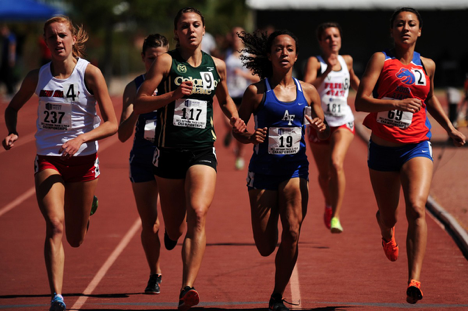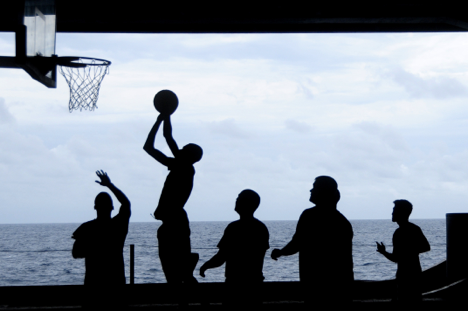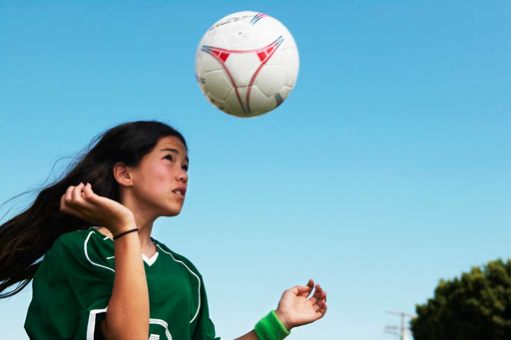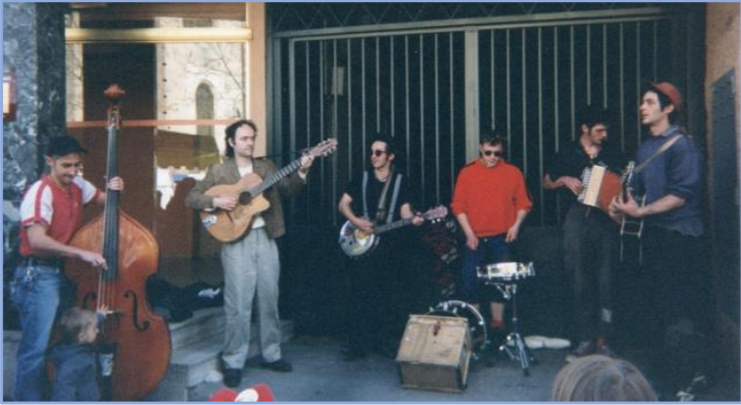4.2: Le temps libre et les loisirs
( \newcommand{\kernel}{\mathrm{null}\,}\)
In this section, you will learn how to:
- Talk about pastimes and leisurely activities
- Talk about sports
- Talk about playing instruments
Listen to the audio clips that follow on this page to hear the French pronunciation of vocabulary and examples presented.
On étudie !
In this video, the teacher describes what each of the people do during their free time.
You will first hear the verb, then the sentence describing what each person does.
To practice, you can listen and repeat.
Les loisirs
Here are some sports and leisurely activities that do not use faire:
| Français | Anglais |
|---|---|
| bavarder avec des amis | to talk, chat with friends |
| bricoler | to tinker, to odd jobs, to make things |
| courir | to run |
| aller en boîte | to go to a night club, to go clubbing |
| nager | to swim |
| pêcher, aller à la pêche | to go fishing |
| pratiquer | to practice, to play (a sport) |
| rêver | to dream |
| s'entraîner | to work out |
| se détendre | to relax |
| se promener | to take a walk |
| promener un chien | to take a dog for a walk |
| skier | to ski (also faire du ski) |
| lire un roman, de la poésie | to read a novel, some poetry |
| jouer à des jeux vidéo | to play video games |
| pique-niquer | to have a picnic |
Les sports, les jeux et la musique
Many sport activities have their own verbs (i.e., skier, courir, nager, boxer). Others are in the form of faire expressions (i.e., faire du jogging, faire de l'escalade, faire de la voile). Even more sports are expressed with the verb jouer (to play), just as we would say "to play basketball" in English. Because jouer can be used with sports, games and musical instruments, we will take a closer look at this verb.
When the verb jouer (to play) is used with musical instruments (les instruments musicaux) or sports (le sport) & games (les jeux) you must add the appropriate preposition after it.
For musical instruments we say: jouer de + [l'instrument].
For a sport or game we say: jouer à + [le sport, le jeu].
It is important to remember to contract prepositions with certain definite articles that follow:
de + le = du
de + les = des
à + le = au
à + les = aux
Here are some examples of musical instruments, sports and games:
| Français | Anglais | jouer... |
|---|---|---|
| le piano | piano | du piano |
| la guitare | guitar | de la guitare |
| le violon | violin | du violon |
| le saxophone | saxophone | du saxophone |
| la batterie | drums | de la batterie |
| la flûte | flute | de la flûte |
| le banjo | banjo | du banjo |
| Français | Anglais | jouer... |
|---|---|---|
| le frisbee | frisbee | au frisbee |
| le foot(ball) | soccer | au foot |
| le baseball | baseball | au baseball |
| le basket(-ball) | basketball | au basket |
| le foot(ball) américain | football | au foot(ball) américain |
| le golf | golf | au golf |
| le tennis | tennis | au tennis |
| le volley-ball | volleyball | au volley-ball |
| Français | Anglais | jouer... |
|---|---|---|
| les échecs | chess | aux échecs |
| les cartes | cards | aux cartes |
| la pétanque | boules | à la pétanque |
| les jeux vidéo | video game | aux jeux vidéo |
| les dames | checkers | aux dames |
La pétanque is also called Jeu de boules. It is a popular sport in France, especially in the south. There are similar versions of this game played in other Mediterranean countries and throughout the world. Learn more about the history of la pétanque here: Pétanque. If you want to learn how to play, check out these tutorials:
| Français | Anglais |
|---|---|
| une équipe | a team |
| un ballon | a ball |
| un jeu | a game (like a boardgame or card game) |
| un match | a match, game (like the Athlético Marseille vs. Paris Université Club) |
| un joueur, une joueuse | a player |
| gagner | to win |
| perdre | to lose |
| un passe-temps | pastime |
| un loisir | leisure activity |
| un spectacle | a show |
| le temps libre | free time |
| pour s'amuser | to have fun (e.g., Qu'est-ce que tu fais pour t'amuser ?) |
| Français | Anglais |
|---|---|
| aller... | to go... |
| au cinéma | to the movies |
| au restaurant | to a restaurant |
| à la peche* | fishing |
| voir un spectacle | see a show |
Did you know that pêche means "fishing" and pêche means "peach"? How do we know the difference? You should know the answer by now: context!!
Study the Quizlet vocabulary flashcards. Listen and repeat the French pronunciation.
Play a memory game with les sports.
Explore more Games, Sports & Hobbies in French.
For more vocabulary see Les jeux, les sport et les instruments
 "This work" is in the Public Domain, CC0
"This work" is in the Public Domain, CC0 "This work" by Pixabay is in the Public Domain, CC0
"This work" by Pixabay is in the Public Domain, CC0 "This Photo by Unknown Author is licensed under CC BY-NC-ND
"This Photo by Unknown Author is licensed under CC BY-NC-ND
On pratique !
Activité A
De quels instruments jouent-ils ? Regardez la photo et identifiez l'instrument que chacun joue.
Modèle : L'homme avec la chemise rouge et les lunettes de soleil joue de la batterie.

Activité B
C’est quel instrument ? Read the descriptions and see if you can guess the instrument.
- C’est un instrument qui a un clavier. C’est un…
- C’est un instrument qui a des cordes. Il est très populaire dans les pays hispanophones. C’est une…
- C’est un instrument de percussion avec deux baguettes. C’est une…
- C’est un instrument similaire à la guitare très populaire dans le sud des Etat-Unis. C’est un…
- C’est un instrument de musique à air. On souffle dedans pour produire des sons. C’est une…
Activité C
Posez ces questions à votre camarade de classe :
- Tu joues de quel(s) instrument(s) de musique ?
- Tu pratiques un sport ? Si oui, lequel, lesquels ?
- Tu fais souvent les courses ?
- Tu joues aux cartes ? Si oui, à quel(s) jeu(x) de cartes joues-tu ?
- Gagnes-tu souvent aux échecs ?
- Quel est ton jeu de société préféré ?
- As-tu un jeu vidéo favori ? Si oui, lequel ?
- As-tu beaucoup de temps libre ? Que fais-tu durant ton temps libre ?
- Aimes-tu regarder le sport à la télé ? Si oui, quel sport ? Quelle est ton équipe favorite ?
Activité D
À tour de rôle, posez des questions à un(e) partenaire.
- Qu'est-ce que tu espères faire l'été prochain ?
- Qu'est-ce que tu préfères faire le vendredi soir ?
- Qu'est-ce que tu achètes tous les jours ?
- Qu'est-ce que tu achètes tous les mois ?
- Est-ce que toi et ton colocataire partagez les frais (expenses) ? Qui paie quoi ?
- Qui nettoie ta chambre ?
- Qui paie quand tu sors avec ton copain, ta copine ?
- À qui est-ce que tu envoies des mèls ?
- Est-ce que tu essaies de nouvelles cuisines de temps en temps ?
- Quand tu vas au cinéma, est-ce que tu emmènes quelqu'un ?
- Qu’est-ce que tu projettes de faire après l’université ?
- Comment est-ce que tu épelles ton nom ?
Activité E
Regardez cette vidéo sur la pétanque.
On approfondit !
Use the following resources to type accents and/or search for words:
- Accents: ç, à, é, è, â, ê, î, ô, û, ù, ë, ï, ü
- Dictionnaire français-anglais


